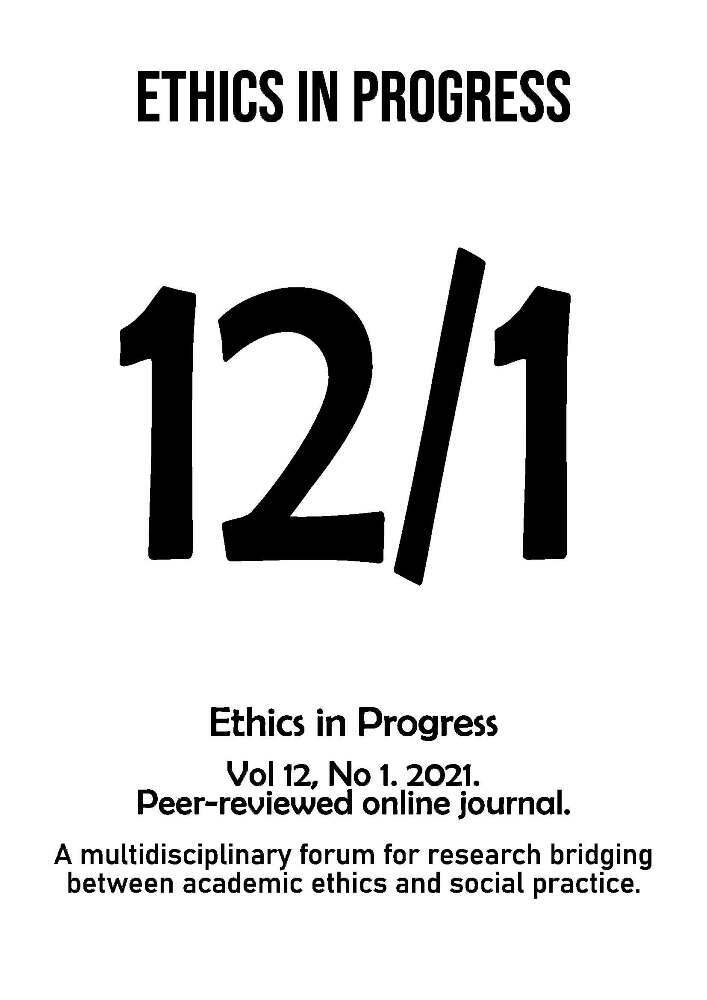Abstract
The findings obtained by G. Lind using his original research instrument – the Moral Competence Test – suggest that universities lack the capacity to foster students’ moral competence development. The MCT has been translated into 39 languages, all of which have gone through the necessary validation procedure. The article reports on the MCT validation study for the 40th language, namely Lithuanian. The research sample consisted of 526 students of English/German/French languages, future foreign language teachers, in the 1 st to 4th years of study at two universities in Lithuania: the former Vilnius Pedagogical University and the Vilnius University. The majority of the respondents demonstrated low or medium level of moral competence. On the basis of this cross-sectional study (2019–2020), the MCT for Lithuanian has been successfully validated and certified. In the following article, we present and discuss all the validation criteria and revisit the theoretical background of MCT. We also argue for educating students in moral competence and evaluating the effects of moral competence promotion in academic contexts.
References
Brimi H. 2009. “Academic Instructors or Moral Guides? Moral Education in America and the Teacher’s Dilemma,” Clearing House 82(3):125–130. Academic Search Complete, EBSCOhost, viewed 5 January 2015.
Hoekema D. 2011. “Is There an Ethicist in the House? How Can We Tell?,” in E. Kiss & J. P. Euben (Eds.), Debating Moral Education: Rethinking the Role of the Modern University. Durham: Duke University Press.
Kiss E., & Euben J. P. (Eds.) 2011. Debating Moral Education: Rethinking the Role of the Modern University. Durham: Duke University Press. Published online: 12 October 2011. Springer Science+Business Media B.V.
Kohlberg L. 1984. The Psychology of Moral Development. Vol. 2: Essays on Moral Development. San Francisco: Harper & Row.
Lind G. 1978. „Wie misst man moralisches Urteil? Probleme und alternative Möglichkeiten der Messung eines komplexen Konstrukts,“ in G. Portele (Ed.), Sozialisation und Moral (pp. 171–201). Weinheim: Beltz,
Lind G. 1982. “Experimental Questionnaires: A New Approach to Personality Research,” in A. Kossakowski & K. Obuchowski (Eds.), Progress in Psychology of Personality (pp. 132–144). Amsterdam: North-Holland.
Lind G. 1989. “Measuring Moral Judgment: A Review of The Measurement of Moral Judgment by Anne Colby and Lawrence Kohlberg,” Human Development 32:388–397.
Lind G. 2000. “The Importance of Role-taking Opportunities for Self-sustaining Moral Development,” Journal of Research in Education 10(1):9–15.
Lind G. 2001. “From Practice to Theory. Turning Teacher Education on Its Feet.” http:// moralcompetence.net/b-liste.htm
Lind G. 2002. Ist Moral lehrbar? Ergebnisse der modernen moralpsychologischen Forschung. 2nd Edition. Berlin: Logos Verlag.
Lind G. 2013. “Favorable Learning Environments for Moral Competence Development – A Multiple Intervention Study with Nearly 3.000 Students in a Higher Education Context,” Internationa Journal of University Teaching and Faculty Development 4(4):173–192.
Lind G. 2010. “Growth and Regression in Cognitive-moral Development in Young University Students,” in C. G. Harding (Ed.), Moral Dilemmas and Ethical Reasoning (pp. 99–114). New York: Routledge.
Lind G. 2019. How to Teach Morality. New: Discussion Theater. Berlin: Logos Publishers.
Piaget J. 1976. “The Affective Unconscious and the Cognitive Unconscious,” in B. Inhelder & H. H. Chipman (Eds.), Piaget and His School (pp. 63–71). New York: Springer.
Schillinger M. 2006. Learning Environments and Moral Development: How University Education Fosters Moral Judgment Competence in Brazil and two German-speaking Countries. Aachen: Shaker Verlag.
Thornberg R. 2008. “The Lack of Professional Knowledge in Values Education, Teaching and Teacher Education,” International Journal of Research and Studies 24(7):1791– 1798. URL: http://dx.doi.org/10.1016/j.tate.2008.04.004. Copyright: Elsevier Science B.V., Amsterdam, http://www.elsevier.com (last viewed on 20 Dec 2020).





